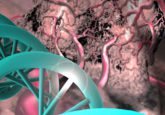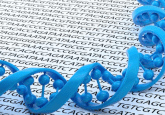Precision medicine: what is it, how has it developed and how is it being applied?

In the lead up to the BioTechniques Online Event: Advancing Precision Medicine 2019, we take a look at the status of precision medicine today and explore its applications, challenges and requirements.
What is precision medicine?
More and more over recent years, the approach of ‘one-size-fits-all’ when it comes to medical therapies and treatments has proven to have numerous drawbacks. How people might – or might not – respond to certain treatments are hardwired into their DNA.
The trial–and–error method favored for prescribing medicines, while sometimes successful, can also leave patients feeling deflated, defeated and – medically speaking – much worse off than they were to begin with.
The proportion of patients who will respond to a best-selling drug for their particular illness is actually very low. In the USA, the top ten highest-grossing drugs help merely 4–25% of people that take them [1].
21621
Figure 1: The top ten highest-grossing drugs in the USA illustrating how many people’s conditions improve from taking them [1].
Precision medicine is aiming to change these statistics by providing a more tailored approach to medical treatment. With whole-genome sequencing costs at an all time low and scientists from other fields now weighing in with their own precision medicine technologies, the field holds great promise.
Is there a ‘precision medicine’ definition?
The definition of what constitutes precision medicine tends to vary slightly based on the source. However, the National Research Council’s book ‘Toward Precision Medicine’ drew their definition from the President’s Council of Advisors on Science and Technology in 2008.
They state that precision medicine is: “The tailoring of medical treatment to the individual characteristics of each patient… to classify individuals into subpopulations that differ in their susceptibility to a particular disease or their response to a specific treatment. Preventative or therapeutic interventions can then be concentrated on those who will benefit, sparing expense and side effects for those who will not” [2].
Are precision medicine and personalized medicine the same thing?
Precision medicine is often used interchangeably with personalized medicine, precision-targeted therapy or personalized therapy.
While they do overlap, the National Research Council preferred the term precision medicine over personalized medicine [3]. ‘Personalized medicine’ originated prior to ‘precision medicine’ and the Council believed that it could be misinterpreted. Personalized medicine suggests that treatments are developed for each individual, however, in precision medicine the tailored approach to treatment is based upon genetic, environmental and lifestyle factors.
How has precision medicine progressed?
Alongside the shifting attitudes amongst researchers and medical professionals, the advance of precision medicine has also been driven forward by a number of initiatives and programs, orchestrated by governments and research groups.
The Precision Medicine Initiative and All of Us
One such example of this is the All of Us program, which evolved from the Precision Medicine Initiative, established in 2015 during the presidency of Barack Obama. The Precision Medicine Initiative was designed to create a program with both long- and short-term goals in place to further our understanding of the impact of genetics, environment and lifestyle on an individual’s health [4].
The short-term goals of the Precision Medicine Initiative focus on implementing the philosophies and techniques used in precision medicine in the field of cancer research. The National Cancer Institute (NCI; MD, USA) hopes that this move will lead to the discovery of novel therapies with a higher potency for each patient’s cancer type.
The long-term goal of the Precision Medicine Initiative was to expand precision medicine to become applicable to all diseases and medical conditions. In order to accomplish this, the All of Us program was developed with the objective of collecting genetic and biological samples, alongside data concerning the environmental impacts and lifestyles of 1 million people.
The All of Us program received an initial US$ 130 million in funding when it launched in 2016, a figure that has since increased to over US$ 290 million [5]. The program was officially opened to enrolment in May 2018 to any adult over the age of 18 that is able to provide consent and is not incarcerated. To encourage participation, all study entrants are able to view their data and any research that their data has been used to complete.
As of this article’s date of publication there are over 247,000 participants in the program; 191,000 of whom have provided biosamples [6]. The data collected so far contains information from:
- White Americans (46.7%)
- Black and African Americans (21.4%)
- Hispanic Latinos and Spanish Americans (17.6%)
- Asian Americans (2.9%)
- Those with more than one ethnicity (6.1%)
- Other ethnicities (3.1%) and those who would prefer not to state their ethnicity (0.7%).
The data is also drawn 38.4% from men and 60.1% women, with participants from the transgender and nonbinary communities contributing to the rest of the dataset [6].
This comprehensive dataset means that studies will be able to draw on the information of thousands of samples and will allow results to be compared between different genders and ethnicities, enabling the development of treatments and diagnostics that are more adaptable and effective for each individual.
Human Cancer Models Initiative
Leading the way in the application of precision medicine to tackle cancer is the Human Cancer Models Initiative (HCMI). The initiative is an international collaboration comprised of the NCI, Cancer Research UK (London, UK), Wellcome Trust Sanger Institute (Hinxton, UK) and Hubrecht Organoid Technology (Utrecht, UK) that was launched in 2016 [7].
The aim of the collaboration is to create 1000 new cancer models that can be used as an exhaustive resource for researchers. The novel techniques that have emerged from the developing field of organoid research are being utilized to produce these models. Tumor tissue from patients with as diverse a selection of cancer types as possible will be utilized to create this comprehensive set of cancer models [7].
To accomplish the mammoth task, Cancer Model Development Centers (CMDCs) have been set up throughout the USA and Europe that will produce next-generation cancer models from the clinical samples provided. These CMDCs hand off the newly developed samples to biospecimen processing centers, clinical data centers and genomic characterization centers [8]. At these centers, comprehensive genome sequencing and expression profiling is conducted alongside drug sensitivity screening while the clinical data of the patient is recorded. Once all of this information has been obtained it is stored in the Genomic Data Commons [9]. This information can then be accessed using the HCMI’s Searchable Catalogue [10].
Thus far, the initiative has created 35 new searchable models, spanning eight different primary sites from bone to brain and esophagus to colon [10]. As this resource grows, researchers will be able to study aspects of cancer previously obscured by a lack of data, in more depth than ever before (e.g. tumor heterogeneity, progression and therapeutic resistance).
Precision medicine in cancer
As the field of precision medicine grows, one area where it is making a significant impact is that of oncology. With there clearly being no one-size-fits-all treatment for cancer, the number of available precision-targeted therapies are increasing rapidly as more researchers turn to a more targeted approach. Steering away from the traditional method where doctors determine treatment based on the type and stage of cancer, specialists now decide the best course of action based on the genetics of a tumor and the mutational changes it has undergone that cause it to grow and spread.
“Now we understand the genetic architecture of each cancer. Sometimes it is better to know the genetic basis of cancer rather than its location. Drugs are being developed based on cancer’s genetic vulnerability rather than [on] tissue of origin,” commented Chris Boshoff (Pfizer Oncology; NY, USA) [11].
The genetics of biopsied tumor tissue can give researchers and clinicians more information about that specific patient’s cancer journey than any other diagnostic test or method of staging. From this, it is possible to tell not only what changes have occurred previously, but also to predict future changes and responses to treatment. Currently, performing a biopsy to remove the necessary tumor tissue is invasive and holds many risks. For this reason, improving the capabilities of liquid biopsy could be revolutionary for precision medicine in cancer; being able to detect circulating tumor DNA in the blood of cancer patients would enable their healthcare team to determine the tumor-associated genetic alterations present without the need of an invasive surgery [12].
Despite the significant advances made in this field, the precision approach has yet to reach the standard of care for most patients and is still in the preclinical or clinical trial phase of development.
NCI-MATCH is an ongoing clinical trial, run by the NCI, studying precision medicine across various cancer types. Treatment of those enrolled in the study is based purely on the genetic changes in their tumors, found by genome sequencing of their tumor tissue [13]. The 39-arm, Phase II study has already had a significant impact in the use of precision medicine across the field of oncology and the results from several of the arms have led to the design of further drug-development studies. With a focus on rare or uncommon cancers, this big data approach is likely to play a key role as a foundation for all future studies in precision therapy for oncology [14].
“NCI-MATCH is an ongoing and dynamic trial,” commented Alice Chen, NCI study chair for the NCI-MATCH trial. “Its signal-finding approach will likely influence how cancer clinical trials are designed and conducted in the future, as treatments that show promise may advance to more definitive studies” [15].
Precision medicine: recent developments and next steps
Precision medicine continues to advance at a healthy pace. Genomics England (London, UK), for instance, recently completed the sequencing of 100,000 genomes from NHS patients [16] and a Finnish research project, termed FinnGen, received €59 million funding in 2017 to complete the matching of 500,000 blood samples with their respective genetic information; a task they have currently completed 303,000 samples of, demonstrating the ongoing drive to advance precision medicine genomics [17].
The efforts of projects such as these have led to hope for conditions beyond cancer. The growing interest in the application of precision medicine in immune cell-mediated conditions such as multiple sclerosis [18] and sepsis [19] indicate a clear shift in attitudes regarding the best approach for conditions. In these disease types, endotypes and patient subgroups have been established that can begin to provide clinicians with information on the prognosis and likely therapeutic responses of an individual’s condition [18,19].
For precision medicine to continue to develop and lead to meaningful clinical applications a number of challenges need to be overcome. First, for applications in cancer, the validation of organoid responses and behavior in vitro as representatives of tumor response and behavior in vivo is essential and any limitations or discrepancies in these models need to be established. Second, the domains of the human genome that have been sequenced but not studied, or had their function confirmed, remain ‘blind spots’ that hold back the analysis of the huge volumes of genetic data that have been collected. Finally, the sharing of the data and information that results for the various projects and initiatives, in a functional and accessible manner, is essential to allow for further collaboration between different research projects, companies and institutions.
In order to facilitate this final point, BioTechniques is hosting the inaugural BioTechniques Online Event: Advancing Precision Medicine 2019. This free 2-day virtual symposium will provide a platform for field-leading experts to share their latest discoveries and to disseminate the most up-to-date information regarding the development of precision medicine. To learn more about the Online Event visit our events page here: and to sign up, register here.





